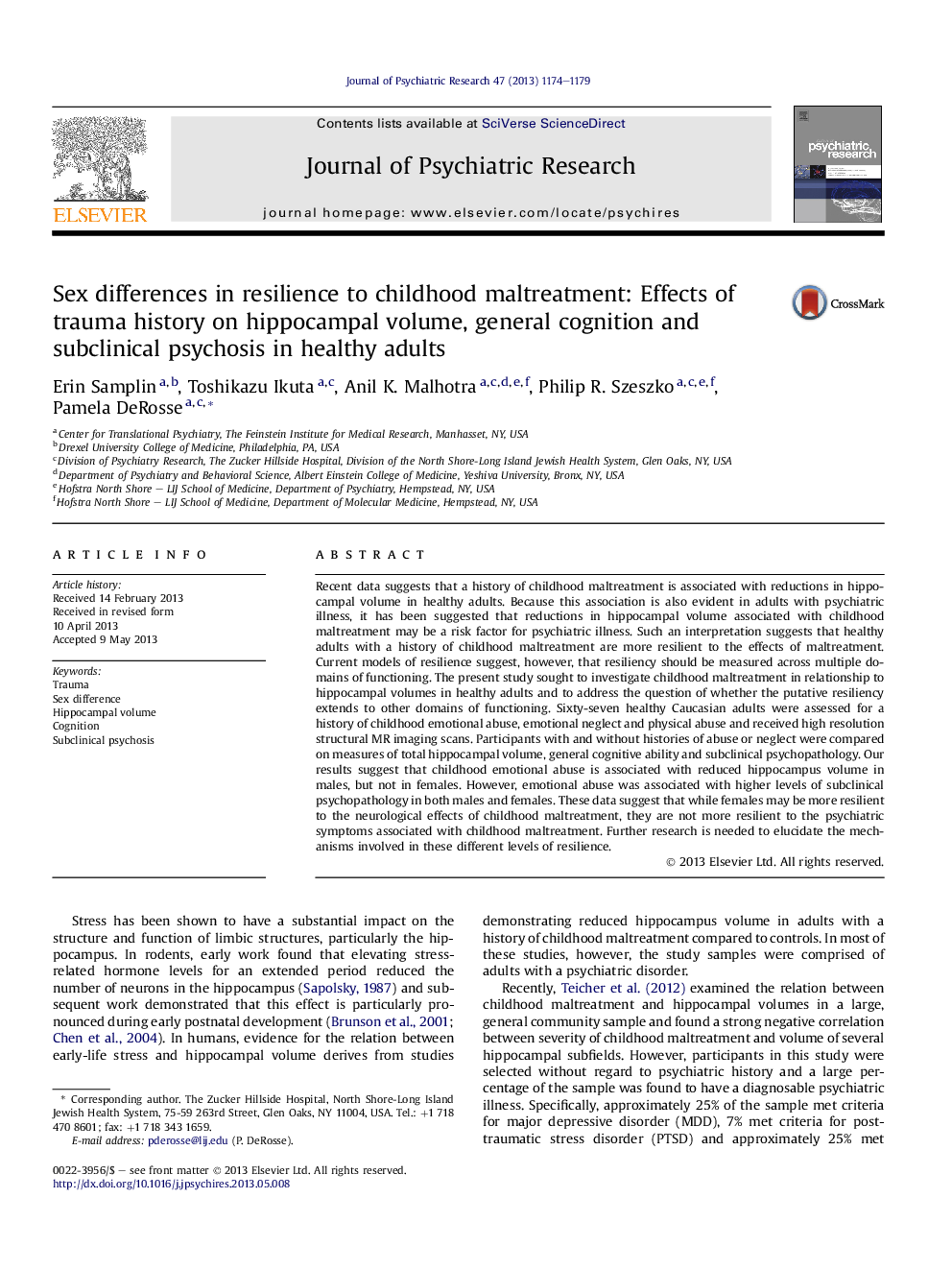| Article ID | Journal | Published Year | Pages | File Type |
|---|---|---|---|---|
| 10302226 | Journal of Psychiatric Research | 2013 | 6 Pages |
Abstract
Recent data suggests that a history of childhood maltreatment is associated with reductions in hippocampal volume in healthy adults. Because this association is also evident in adults with psychiatric illness, it has been suggested that reductions in hippocampal volume associated with childhood maltreatment may be a risk factor for psychiatric illness. Such an interpretation suggests that healthy adults with a history of childhood maltreatment are more resilient to the effects of maltreatment. Current models of resilience suggest, however, that resiliency should be measured across multiple domains of functioning. The present study sought to investigate childhood maltreatment in relationship to hippocampal volumes in healthy adults and to address the question of whether the putative resiliency extends to other domains of functioning. Sixty-seven healthy Caucasian adults were assessed for a history of childhood emotional abuse, emotional neglect and physical abuse and received high resolution structural MR imaging scans. Participants with and without histories of abuse or neglect were compared on measures of total hippocampal volume, general cognitive ability and subclinical psychopathology. Our results suggest that childhood emotional abuse is associated with reduced hippocampus volume in males, but not in females. However, emotional abuse was associated with higher levels of subclinical psychopathology in both males and females. These data suggest that while females may be more resilient to the neurological effects of childhood maltreatment, they are not more resilient to the psychiatric symptoms associated with childhood maltreatment. Further research is needed to elucidate the mechanisms involved in these different levels of resilience.
Related Topics
Life Sciences
Neuroscience
Biological Psychiatry
Authors
Erin Samplin, Toshikazu Ikuta, Anil K. Malhotra, Philip R. Szeszko, Pamela DeRosse,
